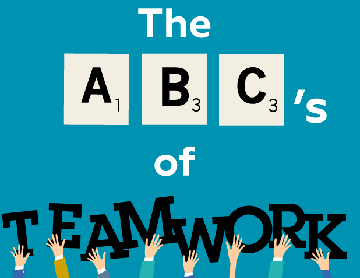The Oscars – Expectation Management

The Oscars are upon us once more. The glitz, the glamour, and the undeniable celebrity factor are just some of the things that make this night of nights for Hollywood so tantalising.
This year – as with most years – there is a lot of discussion around the expected winners for the evening. Encapsulated in these assumptions are assessments of one actor’s worth over another, the subjective talk of what film is the ‘best’ and the instances of the surprise winners of the evening.
Expectations – including the meeting or failure to meet them – are part of what makes the Oscars so enjoyable. Since the public only see the most glamourous side of the ceremony, it remains entertainment and nothing more serious than that. We don’t witness the pressure and the ever-changing goal post of what it means to be the best in the entertainment industry.
In our own lives, we all have our own expectations to meet with our family, friends and in our professional life. While we may not be Hollywood A-listers vying for the top award, we do all still feel the various pressures of what it means to work towards a set of pre-determined expectations in the different areas of our lives. We also all know what it is like when your expectations and the expectations of those around you don’t quite match up.
In the workplace, this failure to set clear expectations can come about because of a range of issues. Namely, too many bosses failing to update their expectations on a regular basis. And secondly, the boss may neglect to mention – or adequately stress – the difference between what is important and what is imperative.
The failure to keep expectations up to date can be a critical issue. In a fast-changing workplace, the nature of your role will change along with it. If you are to succeed in your role, you need to have a clear understanding from management regarding what your role entails, and how the changes happening around you will affect what you understand your role to be.
Secondly, too many of the initial discussions regarding expectations are inadequate because of what goes unsaid. Many managers will believe that the expectations will be so obvious that they don’t need to be explained. However, as many of us who have been party to poor communication practices know, the things that go unsaid can cause a lot of damage down the line.
Proper expectation management can make all the difference in these situations. To assist you, here are a few tools that can be introduced into your workplace to assist with missed communication and missed opportunities.
Clarity
To perform at your best, you need to know what the mark of excellence is. Many people will make the false assumption that they are on the same page as their manager regarding what an excellent performance is. Instead of assuming, make it your responsibility to understand in detail what your priorities are and what will be considered a success. Ask the following questions regularly:
- What specific goals are you expected to accomplish?
- In what time frame?
- How will your progress be measured?
- What is imperative/important?
- What will success looks like for each goal?
Communication
Gaining clarity is just the beginning. To maintain a high level of performance excellence, a continual dialogue needs to be present to gauge progress, assess areas for improvement and adjust actions as necessary. By keeping your manager in the loop, you are ensuring that you have a co-pilot on your path to success and that they are acutely aware of your progress, successes and areas that you may be struggling in.
If you are a manager yourself, assist your staff by outlining your communications preferences. If you prefer to meet with staff once per month to assess performance, outline this and stick to it. Whatever your style, communicate potential issues early and ensure expectations are clearly defined and achievable by your staff.
Contingency plan
Things aren’t always going to go to plan. If you have to plan for anything, plan for contingencies. When your goals are set by yourself and your manager at the beginning of the year, include a ‘Plan B’ as part of the discussion early on. Some goals will not change throughout the year, whereas others will inevitably change due to circumstances that may be out of your control.
Be sure that you are involved when assessing the risks and identifying potential options for addressing likely scenarios. That way, you are less likely to be caught by surprise by an unsuspected situation or turn of events.
Playing the expectations game can be frustrating for everyone involved. Most of the time, we are simply relying on educated guesses and assumptions. While that is fine for something fun and a little fickle like the Oscars, approaching your own work and personal life with the same attitude can end in tears. Take the guess work out of the expectations in your own life with a few simple skills and breeze through any situation like a leisurely stroll down the red carpet.



